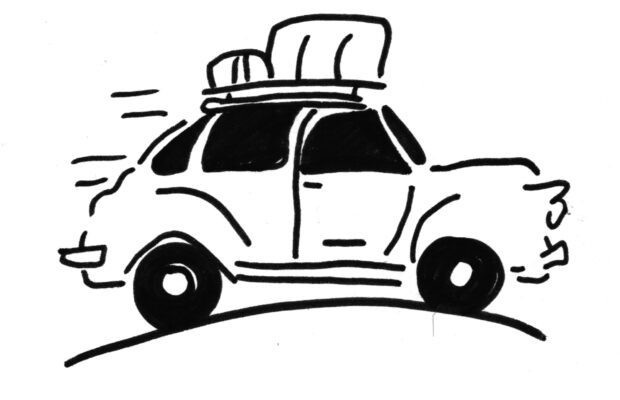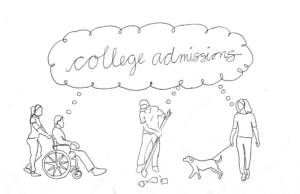“Will & Harper” celebrates both laughter and grief

Humor is medicine for the soul. Between the difficulties and uncertainties of life, comedy can heal the broken parts of ourselves. A new Netflix documentary, “Will & Harper” celebrates the impact that love and laughter have on the people around us and who we are when the world is not watching.
The heartfelt story follows Will Ferrell and his best friend Harper Steele on their 16-day journey across the United States after Steele’s transition to a woman. Ferrell and Steele travel to destinations across America that are meaningful to them, reevaluating their friendship and dynamic now that Steele is out as her authentic self. This warming story is not just about their relationship, but Steele’s new perspective as an older trans woman living in the country that she loves at such a divided point in America’s history.
Ferrell became a member of SNL as an actor during the same week that Steele was brought on board as a writer in 1995. Steele went on to become the head writer at SNL and the mastermind behind some of Ferrell’s most creative movies, forming a lifelong friendship in an instant. Steele came out in 2021, sending Ferrell and close family and friends a heartfelt email regarding the struggle she has had to endure for the past 60 years by not feeling comfortable in her own skin. Ferrell’s reaction was to take her back to her favorite places throughout the country and to experience them as her new and improved self. This was also a way for Ferrell to get to know his close friend again, and for them to connect on an interpersonal level that goes beyond what they have been accustomed to.
They supported each other through laughter and lightheartedness but also through the rejection and discrimination Steele faced on her journey. There are fewer places where she feels safe now as a trans woman, and states where she feels actively threatened throughout the documentary. Navigating the country with a new lens is a difficult thing to experience, especially when interactions such as ordering food and talking with locals feel admonitory. Traveling to places in the country where the LGBTQ+ community is actively discriminated against was a culture shock to Steele, a game of tug of war playing with her heart and appreciation for what America has given her in the past versus how it advocates for her now. On the other hand, Steele has found unlikely places of belonging, like in the outskirts of a dingy bar in the heart of Oklahoma, a hot air balloon ride and a karaoke club. Steele went out of her comfort zone, experiencing these things for the first time as a woman, and Ferrell supported her every step of the way.
Ferrell admits to Steele that he had “zero knowledge” about the trans community and how it would affect their relationship. Ferrell tries his best to create a loving environment for Steele, even when their surrounding areas do not feel as supportive. At times Ferrell falls short, disappointing himself and how he could have handled the situation better. They cry together, laugh together and learn about who they are through the never-ending conversations they have on the road. “Will & Harper” offers Ferrell as a supportive cisgender male role model for the demographic that might be in Ferrell’s shoes. His position offers a deeper discussion of people’s knowledge of what it means to be a woman, and what it means to be a man.
Both Ferrell and Steele leave audiences with a demonstration of what true understanding is. They are both open and willing to grow with each other as partners in crime; one Pringles can at a time. They show us that regardless of how someone identifies, who they love or how they were born, friendship and laughter will prevail.


